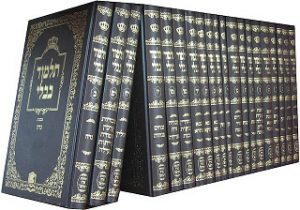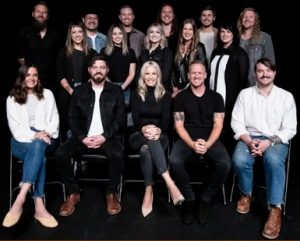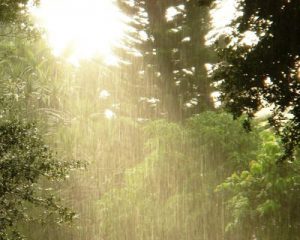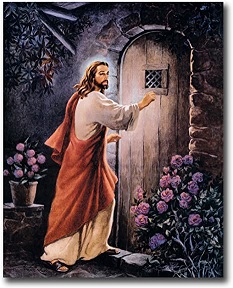This is mark Joseph “young” blog entry #446, on the subject of The Religious Freedom Abortion Argument.
It happens that I have twice heard this argument raised, some forty years apart, by Jewish women. I do not know whether it is exclusive to them, but that will to some degree influence my treatment here. The argument appears to be that Jewish law gives women the right to abort unwanted children, and therefore any national law forbidding that is an impingement on freedom of religious practice.

I had trouble believing that Jewish women had an affirmative obligation to abort a child under any circumstance, but I am no Talmudic scholar–so I consulted those who were. Rabbi David M. Feldman’s article Abortion: The Jewish View (here in PDF) has been adopted as a majority opinion of The Committee on Jewish Law and Standards of the Rabbinical Assembly, sixteen to none with one abstention; it thus represents the interpretation of the Talmud from the perspective of Conservative Judaism, although it is not binding.
It may be worthwhile to acquaint the non-Jewish reader with a few concepts in connection with modern Judaism.
- The Talmud is a large collection of writings interpreting earlier writings by thousands of rabbis interpreting the Torah, and is to a significant degree the fundamental basis for Jewish theology and practice. The image accompanying this post gives an impression of its encyclopedic breadth. It was completed around 500 A.D.
- There are effectively four “denominations” of Judaism in the modern world, and they approach subjects differently.
- Hasidic Judaism is the most conservative, adopting the most traditional views and many traditional practices. These are the men you see in the wide-brimmed hats with the side curls and frequently robes. They might be somewhat analogous to the Amish, separating themselves from the world and focusing on their own faith communities.
- Orthodox Judaism is not quite as conservative as that, but sticks to traditional doctrine very closely. The men of this denomination are often seen in yarmulkes and prayer shawls when out in public, and they follow many rules modern society would consider archaic–such as the concern that a man not come in contact even accidentally with a woman who is not a member of his family. They might be most analogized to the Eastern Orthodox churches.
- Conservative Judaism probably comprises the bulk of those in the modern world who are recognizably but not extremely Jewish. Some will wear yarmulkes in public, but not all will, reserving their religious clothing for religious services. They frequently have mezuzah, those small emblems of the Ten Commandments, on the doorframes of their homes. Yet they are fairly fully integrated into the modern world. From an outside perspective, they perhaps provide the best balance between religious piety and secular integration. In one sense they are most similar to Lutheran and Episcopalian denominations.
- The fourth group of Judaism is called Reformed, and it is perhaps the most diverse. There was a joke in Mad Magazine many decades back to the effect that Orthodox and Conservative Jews had a different name for Reformed Jews, calling them “Christians”. Those I have known have generally been kosher and observed most of the usual rituals, but you would have to know them to be aware that they were Jewish. Individual beliefs of this group are the most varied, making them perhaps most comparable to Baptists.
This hopefully establishes why I consider Conservative Talmudic scholarship the best representation of modern Judaism.
There are a few critical points in the article.
- The Talmud does not believe that the Torah establishes the unborn child as a living person. It is regarded part of the mother until the moment either its head or a substantially large portion of its body has emerged.
- Nevertheless, a mother may not decide to abort a child; it is a decision made by an attending medic, who must make the determination that it is a choice between the life of the child and the life of the mother. The principle is that although the child’s potential life has value to be protected and once the child is born we do not trade one actual life for another, until that moment the mother’s actual life is more valuable than the child’s potential life. It is thus incumbent on the doctor to abort the child if the mother cannot survive the birth.
- Extrapolated from this, it is argued that if the birth of the child will have serious medical–not social or economic–impact on the mother, a doctor may decide to abort it. It is specifically asserted that aborting a child because of a belief that genetic defects will result in a poor quality of life for the child is not permitted, because we cannot know that having no life would be better than having that into which the child will be born. It is only the mother’s physical well-being that can be the justification for this.
At no point in Talmudic Law is a woman given the right, let alone the obligation, to abort an unborn child.
However, as mentioned, Reformed Judaism is a lot looser in its interpretations. It is certainly within the realm of plausiblity that a Reformed Rabbi might believe and teach that a woman has the divinely-given right to abort a child she does not wish to carry to term. That certainly does not have roots in traditional Judaism from ancient times, but if someone believes it, that makes it their religion, and they do under the Constitution have the right to believe whatever they choose. Does that give us a religious argument?
Classical Islamic Law, as expressed in Shari’ah, requires that apostates be put to death. This is done not so much as a punishment for abandoning Islam but as a protection of the community from the errors of the apostate. Although the practice is rare in the modern world, there are still countries in which apostacy is punishable by death. Similarly, many Muslims believe that killing an infidel–someone who does not believe in Islam–is a free ticket to paradise. This is a religious view in a centuries-old religion. However, killing people for unbelief in a particular religion is against the law in these United States, and in the majority of countries around the world. If you murder your sister, the claim that she abandoned Islam for another faith is not a valid defense.
Yet it is a claim of religious liberty: my religion says that I should kill someone who does this, so by killing them I am exercising the requirements of my relgion.
It should be clear that the fact that a religion requires certain conduct does not always stand as an excuse for the performance of that conduct–you cannot kill people for abandoning Islam despite the fact that your religion says you must.
The question of whether an unborn child is or is not a person is clearly a religious one; at the same time, it is one that the law has the right to decide. We have decided that negroes are human beings and have the rights of human beings–something relatively new in the European-American world. If the law decides that someone is a person, a religious belief to the contrary does not justify, legally, treating him as not a person. In the same way, if the law were to say that abortion is not legal, a relgious belief that it should be does not justify it.
Further, the claim cannot be made that women have a religious obligation to get abortions. It can be claimed only (and as we have seen on dubious grounds) that they have the freedom under their beliefs to do so, and that doctors are obligated to perform them at least in life-threatening situations (which in the modern world would ordinarily be addressed by a Caesarean section). There are many things that are permitted but not required by many religions that are forbidden in our country or other countries, and the accommodation in such cases is that we limit our conduct to that which is permissible, opposing the law only when it is in conflict with that which is required, and, as in all cases of civil disobedience, accepting that we will receive the appropriate punishment for breaking the law.
Thus the claim of religious freedom as a basis for abortion appears to me to fail twice, first because there is no religion that requires practitioners to get abortions, and second because the law is permitted to decide whether or not a particular group is a protected class and thus can protect the unborn if it so chooses.
That makes it an issue to be determined by the democratic process.









